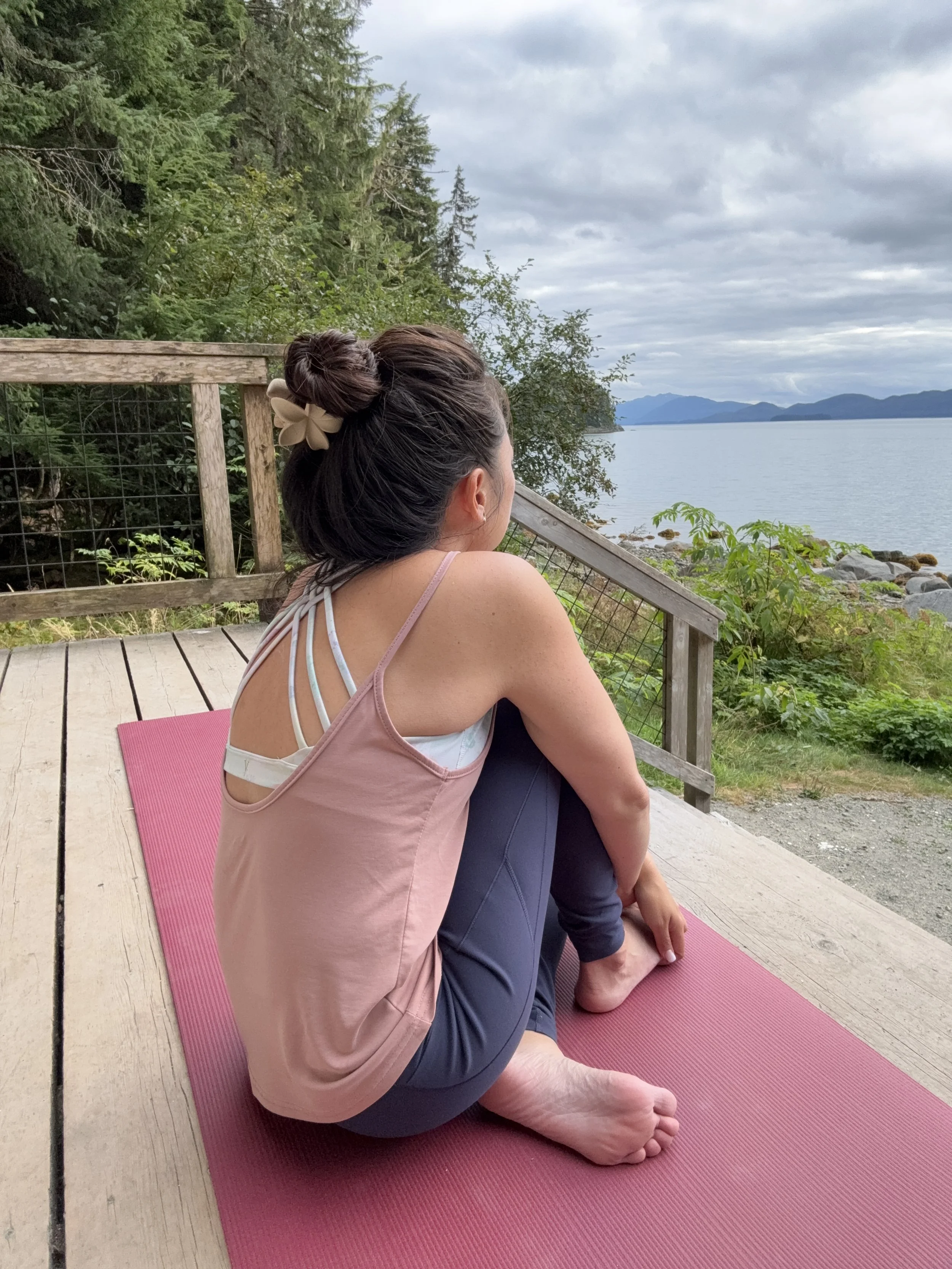I’ve been there. The place where you feel less energy, something is ‘off’, you’re craving space and time.
You don’t need another productivity system - you need margin. A retreat is a deliberate pattern interrupt that gives your brain and body the conditions to regulate, reflect, and reorder your life around what matters. If you’re noticing creeping burnout, decision fatigue, or a constant low‑grade buzz of anxiety, this is your signal to step away so you can return with clarity.
Why a Retreat (and Why Alaska)?
Modern life keeps your nervous system in a perpetual almost emergency. Retreats work because they combine spacious time, a held container, and awe - three forces that reliably down‑shift stress and restore perspective. Alaska amplifies all three. Vast landscapes make your problems feel right‑sized; weather teaches presence; wildlife invites humility. That combination helps real decisions surface.
Who This Is For
People who suspect burnout is not a badge but a boundary.
Creatives who need time to refill the well (writers, photographers, founders, caretakers).
Leaders who want to recommit to values before making the next call.
Anyone craving community without small talk, structure without pressure, and nature without performance.
If you’ve ever whispered “there has to be another way,” you’re my people.
How to Know You Need a Retreat (Symptoms)
Physical: tired but wired, shallow breathing, jaw/shoulder tension, waking at 3 a.m., weekend “recovery” that never recovers.
Mental: decision fatigue, doom‑scroll loops, creative flatness, forgetfulness, spinning on the same problems.
Emotional: irritability, numbness, overreacting to small things, longing for alone and belonging at once.
Behavioral: busywork over deep work, procrastination spikes, caffeine up / wine down, unable to fully enjoy wins.
The way I look at it - if two or more show up for 2+ weeks, your system is asking for a reset.
Why Retreats Work (Science + Lived Experience)
Nervous‑system regulation: predictable rhythm, gentle movement, and nature cues shift you from sympathetic overdrive to parasympathetic repair.
Attention restoration: time away from notifications restores your brain’s capacity to focus and notice patterns.
Awe benefits: exposure to big nature increases prosocial feelings and decreases rumination; your problems feel tractable again.
Meaning making: guided reflection turns raw experience into direction—you leave with language for what matters next.
The Cost of Not Resetting
Worse decisions: urgency masquerades as importance; you optimize for speed over strategy.
Relationship drift: presence erodes; you listen less and defend more.
Creativity debt: without white space, your best ideas never arrive.
Health tax: chronic stress compounds into sleep, gut, and immune issues.
Identity creep: you become what your calendar rewards instead of what your values request.
Myths That Keep High Achievers From Going
“I don’t have time.” You don’t have time not to. A short reset saves weeks of spinning.
“Retreats are indulgent.” They’re maintenance. Like changing oil before the engine seizes.
“I’ll be bored.” Boredom is the doorway to original thought.
“I should be able to fix this at home.” Environment cues behavior; stepping out breaks autopilot.
Looking for something more immediate? Here’s a way to do a quick retreat this weekend!
A Micro‑Retreat You Can Do This Weekend
90 minutes offline. Airplane mode, leave the house.
Walk until your pace drops. Notice five textures; name five scents.
Tea + pen. One page each: What’s draining me? What’s feeding me? What’s one boundary to try this week?
Close with a decision. Calendar it before you reconnect.
Seasons & When to Come
Spring (April–May): emerging greens, longening light, shoulder‑season calm.
Summer (June–August): maximal daylight, whales, alpine access; book early.
Fall (September–October): color, moody skies, reflective pace.
Winter (November–March): quiet, candlelit rituals, aurora chances on clear nights.
(Trip planning support: Secret Places to Visit in Juneau Alaska)
How to Choose the Right Retreat (5 Questions)
What outcome do I need? Clarity, rest, creative re‑ignition, community?
What pace suits my nervous system? Gentle vs. high output.
What container helps me show up? Group size, facilitation style, daily rhythm.
What landscape supports my values? Ocean, forest, ice, mountains—place matters.
What will I carry home? Look for integration tools (rituals, prompts, accountability).
Signs You’re Ready (Checklist)
I catch myself saying “after this week” every week.
I scroll more than I speak to the people I love.
Wins feel muted; problems feel loud.
I want to feel proud of how I spend my minutes again.
If these resonate, it’s time.
Gentle Tools That Help (No Matter Where You Go)
A simple tea ritual to cue calm (steam, scent, warm hands).
Breath ladders (inhale 4, exhale 6) to down‑shift.
Journaling prompts that convert emotion into direction.
Presence photography—use your camera to notice, not to prove.
(Related reads: Evening Tea Ritual • Welcome to Wild Within: A Journey Through Alaska, Ritual and Meaningful Living)
FAQs
Is this fitness‑intensive?
No. Expect gentle movement and unhurried walks (1–3 miles) with plenty of stops.
Do I need to be a photographer?
No. You’ll learn to see again. If you do shoot, you’ll get optional guidance.
Will I have cell service/Wi‑Fi?
Sometimes. We encourage a light digital detox; emergency contact is always available.
Can I come alone?
Yes—many do. The container is designed for solo travelers and introverts.
What if the weather is bad?
There is no bad weather, only different light. We adapt with cozy, beautiful alternatives.




